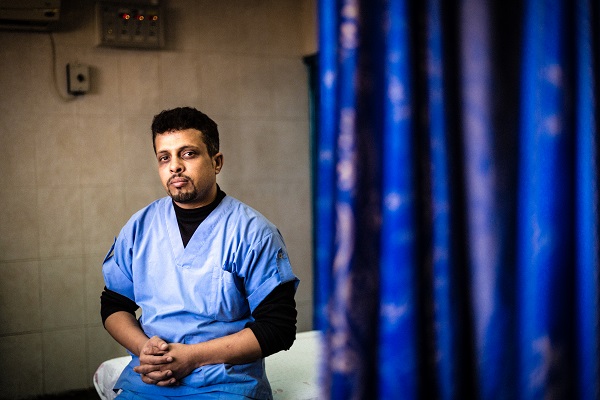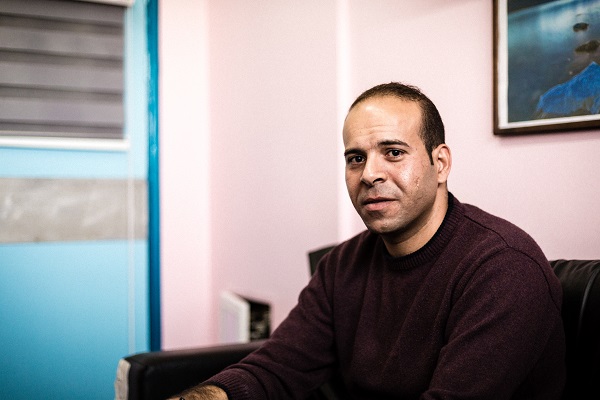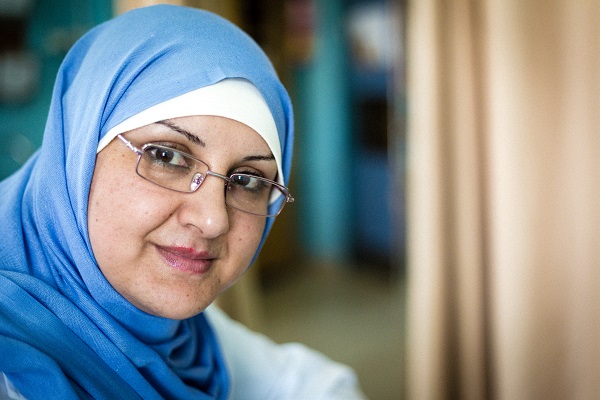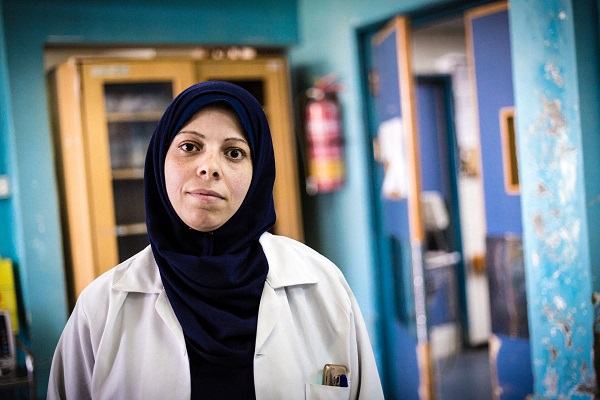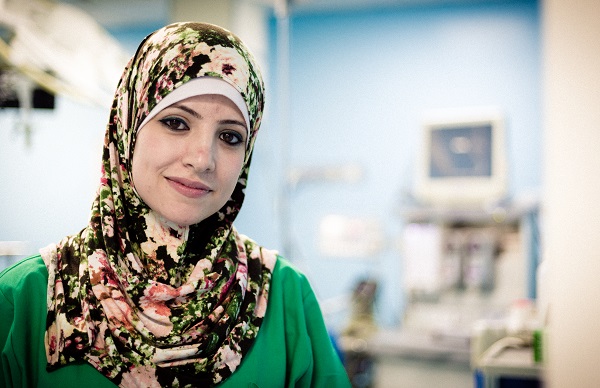Following the escalation of violence along the border area in Gaza, almost two thousand Palestinians have required urgent medical assistance. Hospitals in Gaza, already over-stretched, mobilized all available resources to handle the crisis. Managing the influx of wounded has been particularly difficult, as health services in Gaza are weakened by shortage of drugs and medical supplies, severe restrictions of movement, chronic energy crisis and worsening economic situation.
Despite difficult working conditions, doctors, nurses and paramedics in Gaza have gone the extra mile to attend to the influx of wounded and keep regular health services running. The International Committee of the Red Cross (ICRC) supports hospitals in Gaza with emergency medical supplies, mobility devices, technical expertise and trainings.
Khader, nurse: I have an eight month old son, but I hardly get to see him these days. On Fridays, the emergency room becomes flooded with patients. In this situation you have to work fast, there is no time to think. The thoughts come afterwards. I remember the people I saw die, and I can’t help thinking that this was someone’s brother, father, husband. It brings back the painful memories of the last war. What gives me force? My mother and my wife. They are the most important people in my life.
Dr. Haytham, surgeon: We received the influx of wounded; still there are all the regular patients that require our attention. We had to cancel all the non-life-saving surgeries. We just don’t have enough human resources to cope. When I come home, I am always tired and tense. To relax I smoke. Sorry, I have to run now.
Maggy, nurse: When they brought in all the wounded, the sight of injuries made me nauseous. I ate a piece of lemon and continued working. When I got divorced, I had to leave my two children with my ex-husband, because what I earn as a nurse is not enough to raise them. The most difficult thing for me is to tell parents their child passed away. I can feel their pain, because I know how it feels to be separated from my children. Walking along the seashore brings me the peace of mind and helps me continue.
Dalila, nurse: I am pregnant. My husband was very much against me working at the hospital, but I insisted. It is not easy. My colleagues joke that when we finish taking care of patients, I become another patient for them. What helps me cope with all difficulties during the influx of wounded, is the people I work with. We eat and drink tea together, we make jokes.
Dr. Yusef, anesthesiologist: We are people and we get tired. During an influx of wounded, the patients never receive 100% of the attention they need. There were days, when we operated until four in the morning. You have to learn how to give the best of yourself at work and take the necessary rest at the same time. At home, of course, everybody is worried. They call: “How are you? Did you sleep? Did you eat?” This support is very important.
Dr. Ahmad, surgeon: Every day I have to make a difficult decision: to discharge a patient or keep them in. Many of them live in poverty and I know that if I discharge them they will not get the care they need at home. If I keep them here, we may not have enough hospital beds next time there is an influx of wounded. While your patient is on the operation table, you develop a relationship with them. When I go home afterwards I feel guilty to leave, always thinking there might be complications while I am not there.
Mariam, nurse: Now, all the week we are waiting for Friday. Try to predict how things will go, try to be ready. We are always short of supplies. I often have to take them from other sections, to keep the operation theater running. Emotionally it is difficult, but as soon as I start working, emotions go away. Otherwise, I would be just standing there in shock. I married nine months ago. My husband is also a nurse. He understands what it means to work long hours.


